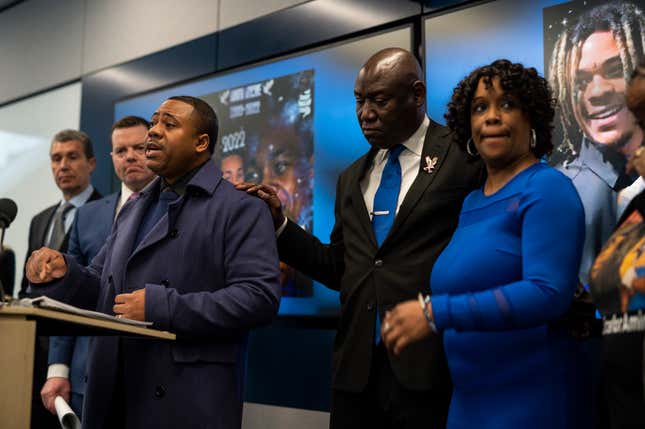
The family of Amir Locke, a 22-year-old who was shot and killed by Minneapolis police, and civil rights attorney Benjamin Crump have announced a federal lawsuit against the city, per ABC News. The suit comes exactly one year after the issuance of the no-knock warrant that led to Amir’s death.
The calls for justice didn’t end after Mayor Jacob Frey restricted the use of no-knock search warrants across the city’s police department. Locke’s murder is just one example of a nationwide problem.
“Everybody, not just in Minneapolis, but across the United States, who has paid attention to no-knock warrants knew that families like this would be standing here,” said attorney Jeff Storms. “The City of Minneapolis knows that no-knock warrants are dangerous, and they knew that before Amir was killed.”
We’ve lost more Black lives at the hands of police following Amir’s death, including the brutal beating of Tyre Nichols, which sparked a new call for police reform. Locke’s murder also followed another botched no-knock raid that resulted in the shooting death of Breonna Taylor. In both cases, the officers involved escaped criminal charges after their use of deadly force was justified.
For that reason, the Locke family’s suit asks the court to appoint a supervisor to train and monitor police officers to ensure they honor the ban on no-knock warrants and preserve citizens’ lives.
Their concerns will be echoed further at the State of the Union address through the families of other police brutality victims.
Read more from ABC News:
This lawsuit announcement comes a day after multiple organizations held a vigil at the Minnesota State Capitol rotunda for the anniversary of Locke’s death.
“Y’all have forever changed the dynamic of a family. This has got to stop. Amir will be the face of banning no-knock warrants. He will not die in vain,” Locke’s mother, Karen Wells, said during the news conference.
The Congressional Black Caucus will be pushing for police reform as well as President Joe Biden to make it a primary issue during his State of the Union address, Crump said.

